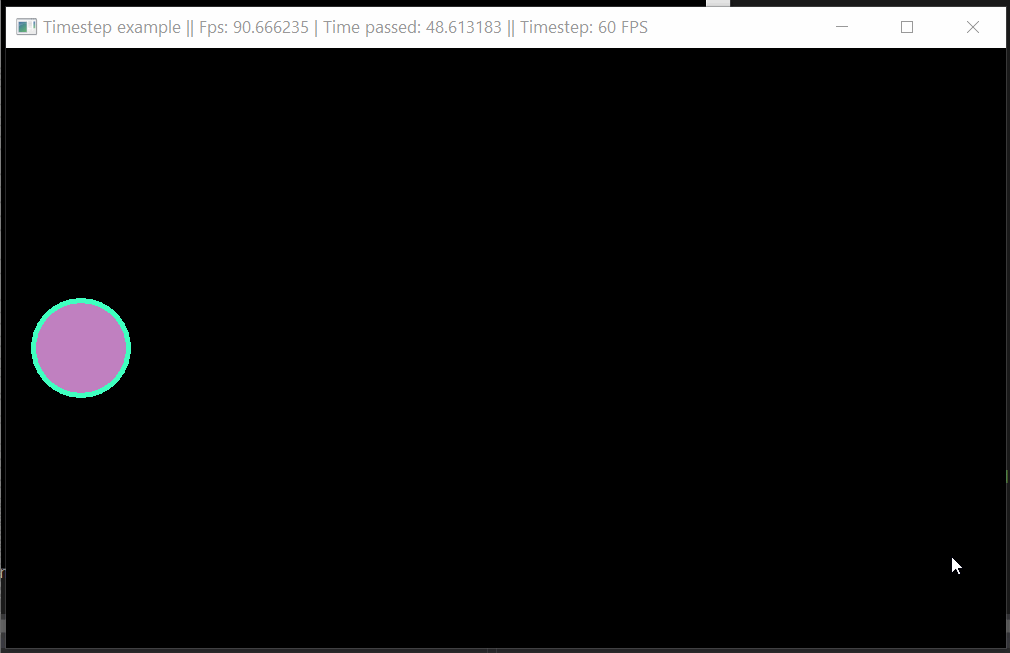1
SFML projects / The Binding of Isaac Remake
« on: May 17, 2017, 09:10:52 pm »
So I found this lovely game called The Binding of Isaac by Edmund McMillen and Florian Himsl. I thought I'd have a go a making something similar since the basic game play is so simple and thought it would be a good way for me to learn how an entity component system design works within a game.
Before I say anything about this project let me just say that it's an absolute piece of trash, I'm not even going to provide a download link because no one should play this. I really like programming but not so much the art side of things so you know, it's not the best looking game. I learned a lot during the makings of it and I had never used an entity component system design before so the code also isn't the best. I'll link the repository below but I wouldn't advise using the code too much to learn off of. I could go on but who wants to read about that. This game may be awful but it's the first complex game I've finished and I hope it inspires anyone struggling with game development to make their own awesome piece of trash too.
Here's the main room. You control the green guy, he has 8 directional movement and 4 directional shooting. The map of the floor in the lower left is randomly generated for each floor just like in the actual game. Once you kill every enemy on the floor that dark grey box in the middle will open and you can move onto the next one.

Every time you kill an enemy you get a coin which can be used to buy the items you can see in the room. I wanted to fill this room up with different items and have them randomly chosen upon generating the floor but I lost interest in further development so I only implemented four lol.

Bombs now explode into projectiles?

I wanted to make the items work together like the actual game so if you pick up the range upgrade item, not only will your bullets travel farther but so will the bullets that come out of the bomb.
The rooms are randomly pulled from a premade set and they are full of various enemies that all behave differently.

Here's a gameplay video. I'm not sure why the video gets choppy when the player transitions from room to room. It runs at a smooth 60fps, it must be some settings in the screen recording software.
Lastly, I just wanted to personally thank Laurent Gomila and the SFML development team for making such a great game library.
https://github.com/KyleNBurke/TheBindingOfIsaac
Before I say anything about this project let me just say that it's an absolute piece of trash, I'm not even going to provide a download link because no one should play this. I really like programming but not so much the art side of things so you know, it's not the best looking game. I learned a lot during the makings of it and I had never used an entity component system design before so the code also isn't the best. I'll link the repository below but I wouldn't advise using the code too much to learn off of. I could go on but who wants to read about that. This game may be awful but it's the first complex game I've finished and I hope it inspires anyone struggling with game development to make their own awesome piece of trash too.
Here's the main room. You control the green guy, he has 8 directional movement and 4 directional shooting. The map of the floor in the lower left is randomly generated for each floor just like in the actual game. Once you kill every enemy on the floor that dark grey box in the middle will open and you can move onto the next one.

Every time you kill an enemy you get a coin which can be used to buy the items you can see in the room. I wanted to fill this room up with different items and have them randomly chosen upon generating the floor but I lost interest in further development so I only implemented four lol.

Bombs now explode into projectiles?

I wanted to make the items work together like the actual game so if you pick up the range upgrade item, not only will your bullets travel farther but so will the bullets that come out of the bomb.
The rooms are randomly pulled from a premade set and they are full of various enemies that all behave differently.

Here's a gameplay video. I'm not sure why the video gets choppy when the player transitions from room to room. It runs at a smooth 60fps, it must be some settings in the screen recording software.
Lastly, I just wanted to personally thank Laurent Gomila and the SFML development team for making such a great game library.
https://github.com/KyleNBurke/TheBindingOfIsaac



